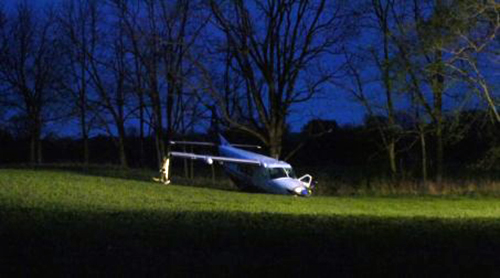Crash of a Cessna 208B Super Cargomaster in Ada
Date & Time:
May 9, 2008 at 2045 LT
Registration:
N893FE
Survivors:
Yes
Schedule:
Traverse City - Grand Rapids
MSN:
208B-0223
YOM:
1990
Flight number:
FDX7343
Crew on board:
1
Crew fatalities:
Pax on board:
0
Pax fatalities:
Other fatalities:
Total fatalities:
0
Captain / Total hours on type:
3450.00
Aircraft flight hours:
8625
Circumstances:
The airplane was on a visual approach to an airport when the engine stopped producing power. The pilot subsequently landed the airplane in a field, but struck trees at the edge of the field during the forced landing. Examination of the engine, engine fuel controls, and Power Analyzer and Recorder (PAR), provided evidence that the engine shut down during the flight. Further examination of engine and fuel system components from the accident airplane failed to reveal a definitive reason for the uncommanded engine shut-down.
Probable cause:
A loss of engine power for undetermined reasons.
Final Report:





